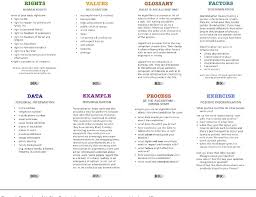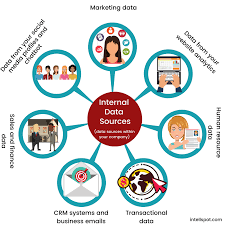Title: The Destructive Power of Decisions Made in Anger
Introduction:
Decisions are an integral part of our lives, shaping the path we tread and influencing our future. However, not all decisions are created equal. Some decisions, made in the heat of anger, can have far-reaching consequences that can potentially ruin our lives. In this article, we will explore why making decisions in anger is detrimental and how to avoid falling into this destructive pattern.
The Impulsive Nature of Anger:
Anger is a powerful emotion that can cloud our judgment and impair rational thinking. When we make decisions in a state of anger, our ability to consider the long-term consequences becomes compromised. Instead, we act impulsively, driven by immediate gratification or a desire for revenge.
Regret and Guilt:
One of the most significant dangers of making decisions in anger is the high likelihood of regret and guilt that follows. Once the initial rush of anger subsides, we often find ourselves questioning the choices we made. We may realize that those decisions were hasty or irrational, leading to feelings of remorse and self-blame.
Strained Relationships:
Decisions made in anger often have a negative impact on our relationships with others. Words spoken or actions taken during moments of rage can cause irreparable damage to friendships, romantic partnerships, or even professional connections. Repairing these relationships may prove difficult or impossible once trust has been shattered.
Career Consequences:
In addition to damaging personal relationships, impulsive decisions made in anger can also have severe repercussions on one’s professional life. Reacting impulsively at work due to anger can lead to conflicts with colleagues or superiors, tarnishing your reputation and potentially jeopardizing career advancement opportunities.
Legal Troubles:
Extreme cases of decision-making fueled by anger can even land individuals in legal trouble. Engaging in physical altercations or acting out aggressively towards others may result in criminal charges or lawsuits that can have long-lasting consequences on one’s personal and professional life.
Strategies to Avoid Making Decisions in Anger:
- Pause and Reflect: When anger strikes, take a moment to pause and reflect before making any decisions. Give yourself time to cool down and regain a clearer perspective.
- Seek Support: Reach out to a trusted friend, family member, or therapist who can provide guidance and help you gain a more objective viewpoint.
- Practice Self-Care: Engage in activities that help alleviate stress and anger, such as exercise, meditation, or deep breathing exercises. Taking care of your mental and emotional well-being can prevent impulsive decision-making.
- Communication Skills: Develop healthy communication skills to express your emotions effectively without resorting to anger or aggression. Learning how to express yourself assertively can prevent misunderstandings that may lead to impulsive decision-making.
Conclusion:
Decisions made in anger have the potential to wreak havoc on our lives, damaging relationships, careers, and personal well-being. By recognizing the destructive power of anger-driven choices and implementing strategies to avoid impulsive decision-making, we can navigate life’s challenges with greater clarity and make choices that align with our long-term goals. Remember, it is essential to cultivate self-awareness and emotional intelligence in order to make decisions that will positively shape our lives rather than destroy them.
Understanding the Impact of Decisions Made in Anger: Frequently Asked Questions
- How can decision made in anger ruin my life?
- What are the consequences of making decisions in anger?
- How can I avoid making decisions in anger?
- What are some tips for managing my emotions before making a decision?
- Is it possible to reverse the damage caused by an angry decision?
How can decision made in anger ruin my life?
Making decisions in anger can have several detrimental effects on your life:
- Impaired Judgment: Anger clouds your ability to think rationally and consider the long-term consequences of your actions. In this heightened emotional state, you may make impulsive decisions that you later regret.
- Damaged Relationships: Acting out of anger can cause irreparable damage to your relationships with friends, family, or romantic partners. Words spoken or actions taken in anger can hurt others deeply, leading to strained or severed connections.
- Legal Consequences: Extreme cases of anger-driven decision-making can lead to legal troubles. Engaging in physical altercations or aggressive behavior towards others may result in criminal charges or lawsuits, leading to long-lasting legal and financial consequences.
- Professional Setbacks: Making decisions in anger at work can have severe repercussions on your career. Reacting impulsively towards colleagues or superiors can damage your professional reputation, hinder career advancement opportunities, or even lead to job loss.
- Emotional Toll: Making decisions in anger often leads to feelings of regret, guilt, and self-blame once the initial rage subsides. These emotions can take a toll on your mental well-being and erode self-confidence.
- Missed Opportunities: Decisions made in anger may cause you to miss out on positive opportunities for personal growth and success. By acting impulsively without considering all the options, you may overlook potential solutions or alternative paths that could have been beneficial.
- Self-Sabotage: Consistently making decisions based on anger creates a pattern of self-sabotage that undermines personal happiness and fulfillment. It prevents you from making choices aligned with your values and long-term goals.
It is important to recognize the destructive potential of decisions made in anger and take steps to manage and channel this emotion constructively. Developing emotional intelligence, practicing self-awareness, seeking support from trusted individuals, and implementing healthy coping mechanisms can help you avoid the pitfalls of anger-driven decision-making and preserve the quality of your life.
What are the consequences of making decisions in anger?
Making decisions in anger can have a range of consequences that can significantly impact various aspects of our lives. Here are some common consequences:
- Regret and Guilt: Acting on impulse while angry often leads to regret once the anger subsides. We may realize that our decisions were rash, irrational, or hurtful, causing feelings of remorse and guilt.
- Damaged Relationships: Decisions made in anger can strain or even destroy relationships. Harsh words spoken or impulsive actions taken during moments of rage can damage trust and create lasting rifts with friends, family members, romantic partners, or colleagues.
- Professional Repercussions: In professional settings, acting out of anger can have serious consequences. Engaging in conflicts with coworkers or superiors due to impulsive decisions may harm your reputation, hinder career growth opportunities, or even result in job loss.
- Legal Troubles: Extreme cases of decision-making fueled by anger can lead to legal troubles. Physical altercations or aggressive behavior towards others can result in criminal charges or lawsuits that have long-lasting legal and financial repercussions.
- Emotional Toll: Making decisions in anger can take a toll on our emotional well-being. The aftermath of impulsive choices may lead to increased stress, anxiety, and depression as we grapple with the consequences and attempt to repair the damage caused.
- Missed Opportunities: Decisions made hastily in moments of anger may cause us to miss out on valuable opportunities for personal growth, career advancement, or positive life experiences.
- Self-Sabotage: Acting impulsively out of anger often undermines our own best interests and goals. It can lead us down a path where we make choices that go against our long-term well-being and happiness.
It is important to recognize the potential consequences of making decisions while angry and take steps to manage our emotions effectively before taking any action. Learning healthy coping mechanisms for dealing with anger and finding ways to make decisions based on rational thinking and long-term considerations can help mitigate these negative consequences.
How can I avoid making decisions in anger?
Avoiding making decisions in anger can be challenging, but it is certainly possible with some conscious effort. Here are a few strategies that can help:
- Pause and Reflect: When you find yourself feeling angry or enraged, take a moment to pause and step away from the situation. Give yourself time to calm down and regain control of your emotions. This allows you to think more clearly and make rational decisions.
- Practice Self-Awareness: Develop an understanding of your triggers and how anger affects your decision-making process. By being aware of your emotional state, you can catch yourself before making impulsive choices driven by anger.
- Seek Support: Reach out to a trusted friend, family member, or therapist who can provide guidance and help you gain a more objective perspective on the situation. They can offer advice and support, helping you make more informed decisions.
- Engage in Stress-Relieving Activities: Find healthy outlets for stress and anger that allow you to release pent-up emotions in constructive ways. Engaging in activities like exercise, meditation, deep breathing exercises, or journaling can help calm your mind and reduce the intensity of anger.
- Improve Communication Skills: Enhancing your communication skills can help prevent misunderstandings that often lead to anger-fueled decisions. Learn effective ways to express yourself assertively without resorting to aggression or hostility.
- Practice Empathy: Try to put yourself in the shoes of others involved in the situation that triggered your anger. Understanding their perspective can help diffuse anger and promote empathy, leading to more thoughtful decision-making.
- Consider Consequences: Before making any decision while angry, take a moment to consider the potential consequences it may have on various aspects of your life – relationships, career, reputation, etc. Reflecting on these potential outcomes may encourage you to choose a more measured response instead of acting impulsively.
- Take Breaks from Conflict: If possible, remove yourself from situations that consistently trigger anger until you have developed healthier coping mechanisms. Taking breaks from conflict can help you gain perspective and prevent impulsive decision-making.
Remember, managing anger and avoiding impulsive decisions is a process that takes time and practice. By implementing these strategies consistently, you can develop healthier ways to handle anger and make decisions that align with your long-term goals and well-being.
What are some tips for managing my emotions before making a decision?
Managing emotions before making a decision is crucial to ensure that our choices are rational, well-thought-out, and aligned with our long-term goals. Here are some tips to help you manage your emotions effectively:
- Recognize and Acknowledge Your Emotions: Start by identifying the specific emotions you are experiencing. Whether it’s anger, frustration, fear, or sadness, acknowledging your emotions allows you to gain clarity about what you’re feeling and why.
- Take a Pause: When faced with a decision-making situation that triggers strong emotions, give yourself some time and space to step back. Take a deep breath and allow yourself a moment of calm before proceeding. This pause helps prevent impulsive reactions driven by intense emotions.
- Engage in Self-Reflection: Use the pause to reflect on the situation at hand and explore the underlying reasons for your emotional response. Ask yourself questions like: What triggered this emotion? Is it based on past experiences or biases? Understanding the root cause can help you gain perspective and make more informed decisions.
- Seek Perspective: Reach out to trusted friends, family members, or mentors who can provide an objective viewpoint on the situation. Discussing your emotions and concerns with others can offer fresh insights and alternative perspectives that may influence your decision-making process.
- Practice Emotional Regulation Techniques: Develop strategies to regulate your emotions effectively. Deep breathing exercises, mindfulness meditation, physical exercise, or engaging in activities that bring you joy can help reduce stress levels and create emotional balance.
- Consider Long-Term Consequences: When making decisions while experiencing strong emotions, it’s easy to focus solely on immediate gratification or relief. Take a step back and consider the potential long-term consequences of your choices. Will this decision align with your values? Will it contribute positively to your overall well-being?
- Evaluate Different Options: Emotions can sometimes narrow our focus and limit our ability to see alternative solutions or perspectives. Challenge yourself to explore different options and consider the pros and cons of each before finalizing your decision.
- Practice Empathy: Consider how your decision may impact others involved in the situation. Put yourself in their shoes and try to understand their emotions and perspectives. This empathetic approach can help you make decisions that are fair, considerate, and compassionate.
- Learn from Past Experiences: Reflect on past decisions made under emotional distress. Identify any patterns or recurring mistakes that you can learn from. Use these lessons as a guide to avoid similar pitfalls in future decision-making processes.
Remember, managing emotions before making a decision is an ongoing practice that requires self-awareness, patience, and a commitment to personal growth. By implementing these tips, you can navigate decision-making with greater clarity and make choices that align with your values and long-term goals.
Is it possible to reverse the damage caused by an angry decision?
While it is not always possible to completely reverse the damage caused by an angry decision, there are steps you can take to mitigate the negative consequences and work towards repairing the situation. Here are some suggestions:
- Acknowledge and Apologize: Take responsibility for your actions and acknowledge the impact they had on others. Offer a sincere apology to those affected, expressing remorse for any harm caused.
- Communicate Openly: Engage in open and honest communication with the individuals involved. Listen to their concerns, validate their feelings, and express your willingness to make amends.
- Make Restitution: If appropriate, consider ways to make restitution for any tangible or emotional damages caused by your angry decision. This could involve offering assistance, compensating for losses, or making efforts to rebuild trust.
- Learn from the Experience: Reflect on what led you to make that angry decision in the first place. Identify triggers and patterns that contributed to your emotional response, and work on developing healthier coping mechanisms for managing anger in the future.
- Seek Professional Help: If necessary, consider seeking guidance from a therapist or counselor who can help you navigate through the aftermath of your angry decision. They can provide valuable insights and strategies for personal growth and healing.
- Give it Time: Healing takes time, both for yourself and for those affected by your actions. Be patient with yourself as you work towards making amends and rebuilding relationships.
It’s important to note that while it may not be possible to completely reverse all consequences of an angry decision, taking these steps demonstrates accountability, growth, and a genuine desire to repair the damage caused. By learning from our mistakes and making a conscious effort to change our behavior moving forward, we can strive towards personal growth and prevent similar situations from occurring in the future.



